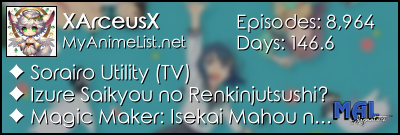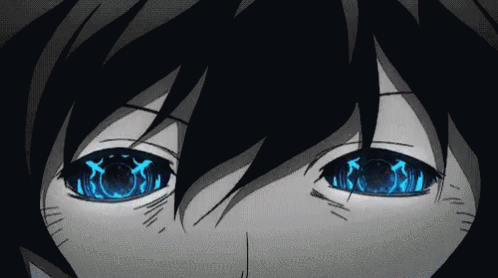I continue to be blown away by the quality of the show. Everything else is fine to good too, but I really mean in the writing department. I didn't expect it from a show released nowadays with this description. Of course it always contained the inherent potential to be something great and beautiful, with its premise, like so many other anime. But I didn't think it likely it would be one of the ones to do so. Glad I "tried it just to try it" though and overjoyed that it's not another low effort fantasy anime with little to no heart.
This keeps going back and forth between my second and third favorite series of the season, but I feel as though every indication is it will keep going up in the long run or at least remain high somewhere.
The genres for the series are principally action, adventure, fantasy, and historical, but this recent miniature arc or set of episodes strayed into the realm of mystery as well with a very classic "Whodunnit?" type of case. But the thing with mystery shows is, while I watch and enjoy many of them, I don't wade into the guessing game that so many like to. I rather just sit back and let what is to unfold progress to unfold. If the intention was to signal to the audience that the person who was the culprit behind the serial killings and disappearances was actually a known and named character from the previous episode, then there were very few to choose from.
We knew that it wasn't Jinta, some people suspected Mosuke but I didn't think that made very much sense (though did briefly begin to suspect him early on in this episode when I began wondering if the reason they were unable to thus far find or hear any more news about the killer since they started their joint search effort was because he was actually him/it, so they would never find him while they were working together and Jinta was there), and Ofuu and the father owner of the soba shop duo really didn't make any sense unless one of them was actually a demon or just a person leading a radically different alternative lifestyle underground from what they appeared on the exterior. Which of course is possible, but I didn't see why it had to be a named character at all to begin with, other than technically to make the mystery aspect potentially "solvable" for those in the audience into that interactive experience.
I hadn't even stopped to consider Mosuke's wife Hatsu as she was technically a named character but not one we met onscreen in present time, but again, I don't like to try and get ahead of the show so hadn't really thought about it too deeply. What I didn't expect all the more was for the demon to be the cousin of Goshinki with a similar voracious appetite.
For the culprit behind the serial slayings and disappearances and the one (as we know now, multiple ones) behind Mosuke's wife rape and death to be two different phenomena although tightly correlated in that one gave rise to the other feels perfectly fitting for the origin story or genesis of how some demons come to be in this universe (born from unresolved and passionately-held, usually negative feelings and emotions, similar to ghosts and malevolent spirits) and for another illustration of the duality of humanity and demonkind both.
We have:
Jinta = The originally good human, turned good demon
Mosuke = Good demon
Hatsu = Good human, turned bad demon
Gang rapists = Bad humans
Simplifying with the "good" and "bad" here but you can substitute it for "giving" and "compassionate" or "cruel" and "vicious" and you get the gist either way. That's clearly the roles assigned to be played in this story and it's demonstrated in multiple instances now that humans or demons can both be on either side of the line. This isn't just a monster-slaying story for by the end, the "monsters" or "demons", as he saw them, that he slayed, were human men.
Natsu and the male worker assisting her returning only two episodes later confirms that even some characters who may initially seem to be one-time appearances may not merely be relegated to episodic fodder for those who were already complaining of the limitations of episodic storytelling structures as early as episode two or three.
The only aspect I worry over a bit is that the series going forward hopefully won't be overly reliant on the gut punch of a twist ending, which cannot always outdo itself in practice and would become formulaic and lose impact if expected. The first double-length episode had the "twist" or shock ending which set up the whole premise of the show. The second had the reveal of the man hiring Jinta being his estranged father and Jinta obviously seeing their shared past and the relationship between them from a different vantage point now (further elaborated upon in episode three). The third episode didn't have a twist or dramatic ending going for maximum impact, but that's because it was treated as a two-parter with this episode and that ending came in this episode.
So I'm not wishing for them to tone or dull it down; just hope that they feel comfortable ending their episodes and mini stories within the main story on all kinds of ways structurally and notes tonally in the long run and also feel able to take their time and not rush this story. Because I haven't enjoyed a historical fantasy adventure series to this extent in I can't tell you how long. |





















